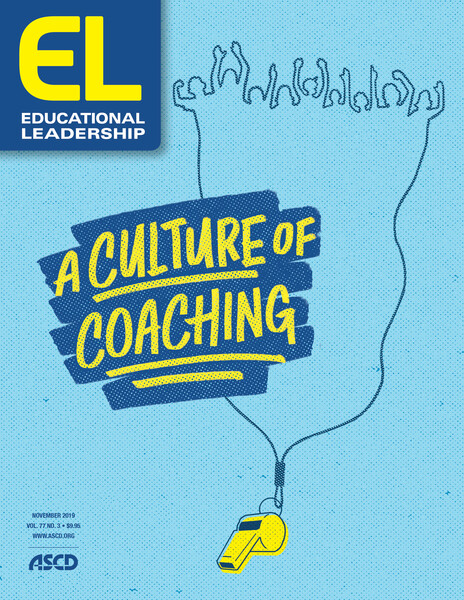When educators discuss the systemic "monsters" that must be slain for America's schools to become more just institutions, they often point to the ugliest ones: structural racism and sexism, homophobia and transphobia, class prejudice, ableism, and all manners of implicit bias. And rightly so: Educators must not only be honest about these problems, but we must energetically resist them if we are to meaningfully confront inequity in schools.
Yet this focus on the big monsters can also lead us to ignore some of the more micro issues that stand in the way of effective and just teaching. One such problem is the archaic way that many administrators hold teachers accountable for their lesson planning.
Over the past couple of years, I've held workshops for teachers across the country on designing meaningful conversations on race. During these sessions, I often discuss Chapter 3 of my book, Not Light, But Fire (Stenhouse, 2018), titled "Structuring Your Dialogic Curriculum." As we discuss the benefits of linking classroom racial conversations into unit-long and even year-long "threads," buttressed by enduring understandings and essential questions, my teacher audiences are often captivated—until someone brings up the biweekly lesson plan that many of their administrators make them submit. How, they ask, can such conversational threads fit into a neat packet of 10 lesson plans?
A fascinating phenomenon follows. I argue that the biweekly lesson plans actually stand in the way of good pedagogy, and my fellow teachers—whether they work in comprehensive or magnet public schools, charter schools, or private schools, whether they teach in urban, suburban, or rural communities—emphatically agree with me. No issue unites my audience members like their mistrust of using biweekly lesson plans for accountability.
The reasons behind this opposition are solid. The main issue is that this accountability process encourages all parties to lie. Teachers can do the math. We know that with all their responsibilities, our administrators won't likely have time to closely read our plans and give us meaningful feedback. They are more likely to check our plans for the "basics." Are the state standards listed? Is every domain of the Danielson framework accounted for?
Meanwhile, the lies that teachers admit to during my sessions often leave me bent over with laughter. We sometimes change the date on last year's plans and resubmit them. We might submit the same plans for different classes we teach. We sometimes even snatch someone else's plans off the internet. We do these things not because we're lazy, or out of spite, but because no student-centered teacher knows on Sunday night where their students will be in their learning next Thursday. As the days pass, the plans we've submitted become less and less useful to our actual practice. So why bother?
This is not a harmless situation. Our professional relationships, which are so important in equity work, can be hobbled by such duplicity. Many teachers resent the sparse feedback they get on their lesson plans. Though we know that our bosses are busy, we worry that our ideas are being dismissed. The more cynical veterans among us might attribute this dismissal to our bosses' relative inexperience or their suspiciously early flight from "the trenches." The more positive among us might slide into an easy acceptance of our bosses as just, well, bosses. More managers than mentors, not lead educators or visionaries worth following.
Impairing Pedagogical Thought
More damaging, however, is the potential impact of the accountability tactic on our pedagogical thought. First, thinking in two-week blocks tempts us to overcompartmentalize our most important classroom conversations. Rather than providing space for students to dig into topics or projects that require continuity of thought and depth of understanding, we tend to plan discussions that end after one day, two days max, regardless of the topic's importance and complexity. Second, and more dangerously, we are forced to follow our own script, ignoring the meaningful tangents and opportunities that emerge from authentic classroom conversation. If we are going to discuss X on Wednesday, that's what we will be discussing, regardless of what happened on Tuesday. This is especially true if the administrator uses the biweekly plan to guide classroom observations. We'd better be where we said we'd be.
This system is held up by the same inertia that traps educators into many inefficient and dangerous practices. But thankfully, I have lived an alternative for the past 13 years.
The administrators at my school have a different way of holding my colleagues and I accountable for our planning. Our staff is required to read Grant Wiggins's and Jay McTighe's Understanding by Design (ASCD, 2007), and we've studied its backwards-design approach to unit planning. In short, we are encouraged to think in unit-long stretches of time (3–5 weeks on average). Our unit planning template—which requires only 1–2 pages to complete—begins with an enduring understanding that is to be our students' chief takeaway. Then we craft essential questions that will spark our students' inquiry as they move toward this understanding, followed by listing both the new skills that students will be taught and old ones that they'll continue practicing. My favorite part, "Progression," is next. This is where we list the order that we expect to introduce information, texts, skills, and, discussions in. Finally, we explain how our unit engages our school's core values.
Authentic Instruction
There are major advantages to this process. First, it makes it considerably easier for administrators to offer meaningful feedback. They no longer need to sort through countless pages of daily lesson plans, trying to remember what any given teacher did during previous weeks to set up what they are doing now. With the larger scope, they can critique a teacher's strategic planning, not just any day's tactical execution. In addition, these two-page documents are shareable, making them useful resources for staff collaboration and discussion.
Finally, although teachers will continue to design daily lesson plans, ceasing to use these lessons as an accountability measure frees us from having to keep rigidly to their schedule. If a discussion of Native Son leads to an extended study of redlining, that's OK. If a personal story about police brutality inspired by The Hate U Give takes a few more days than expected to unpack, no worries. If a student has somehow made it to 9th grade without knowing about the Holocaust and his teacher chooses to adjust the unit's progression to address this gap, that's all right too. Quality teachers have always made these types of adjustments—but too often, archaic lesson-accountability systems force good pedagogy to be practiced in secret, lied about, or, even worse, discarded.
So, as we continue combatting the largest systemic monsters, it is important that we don't fail to identify and eradicate self-erected obstacles to more just teaching. Our systems of accountability should help educators maintain an authentic culture of instruction, not merely reinforce professional mistrust and tolerance of busywork.






